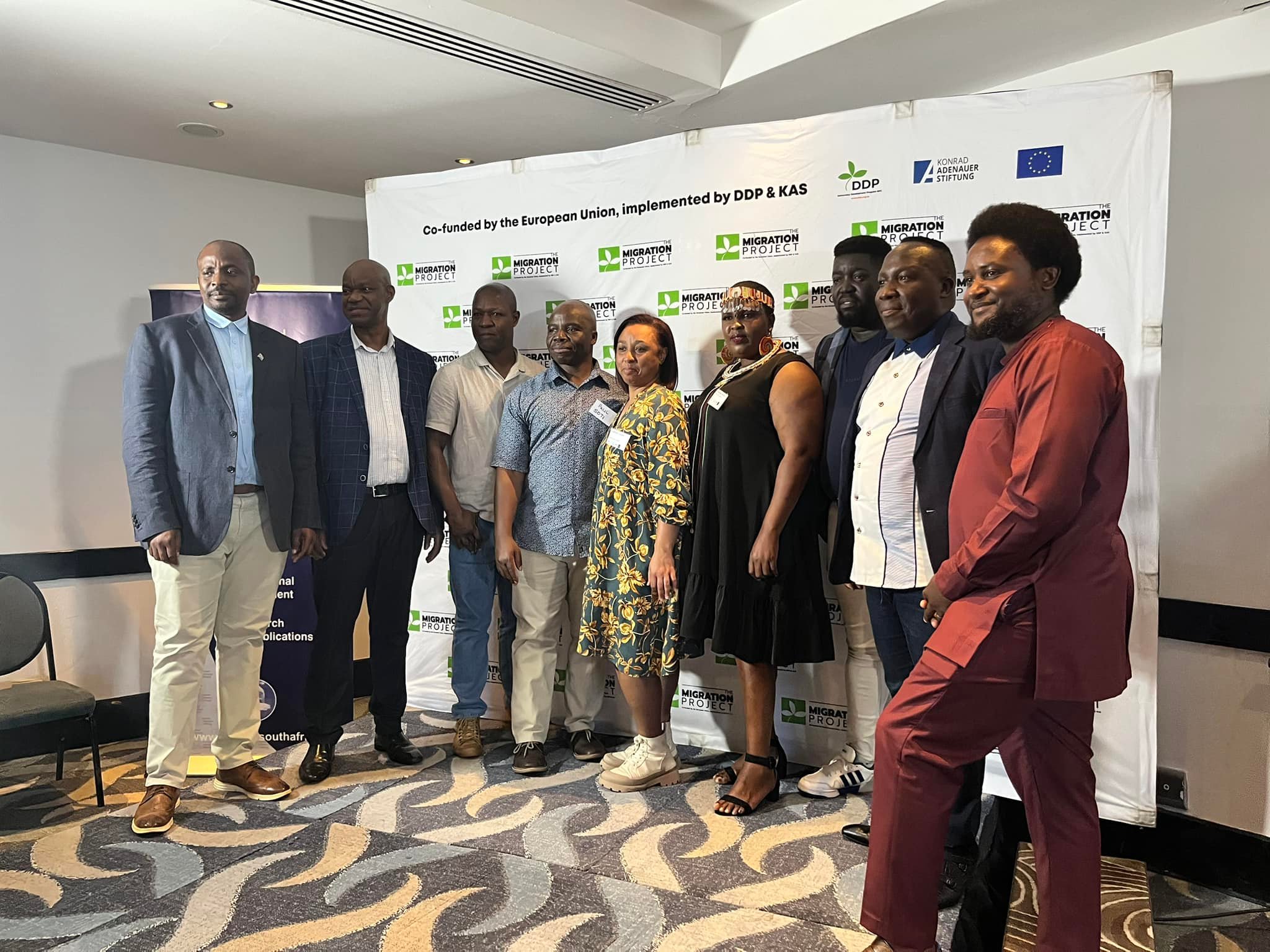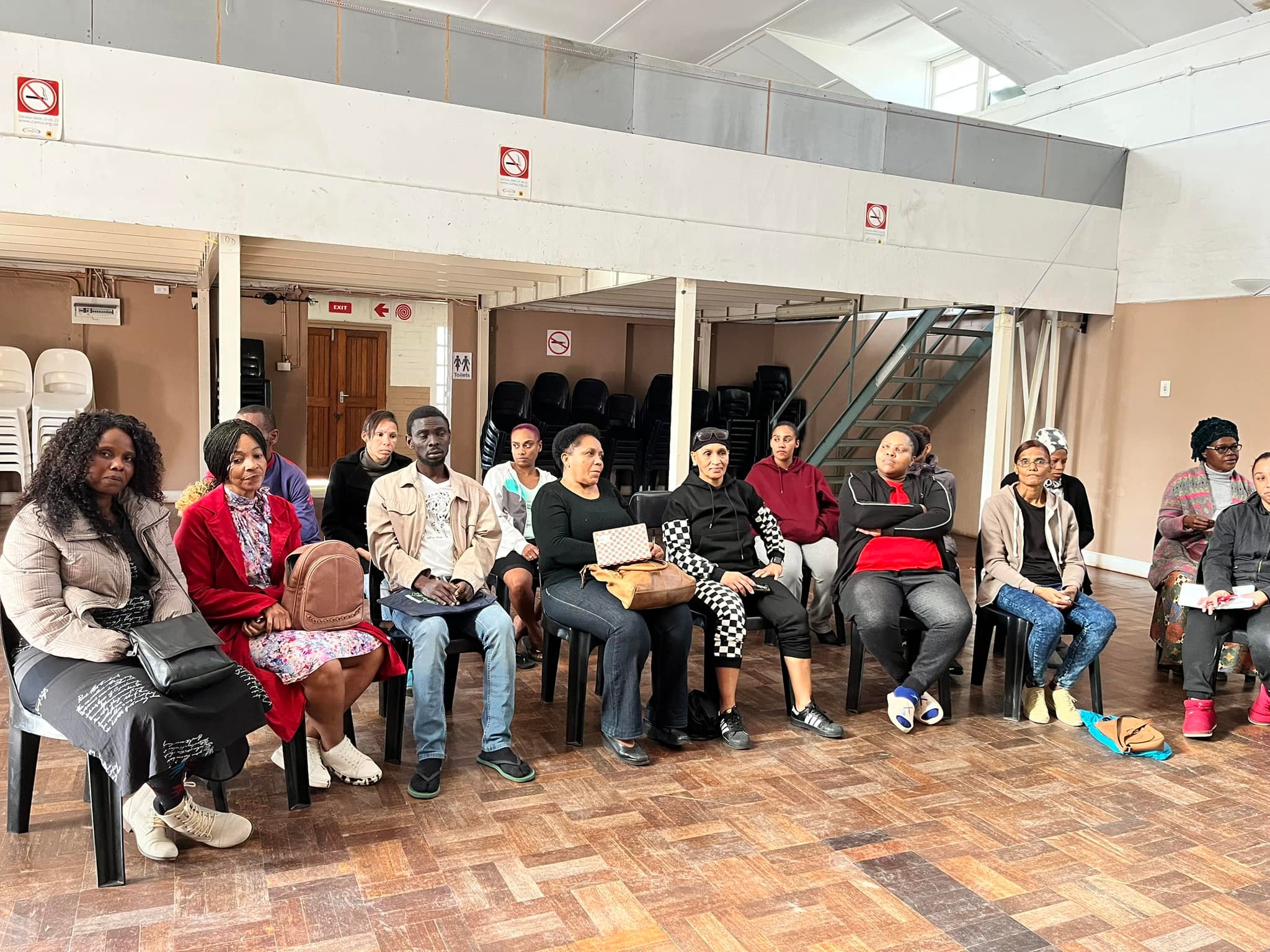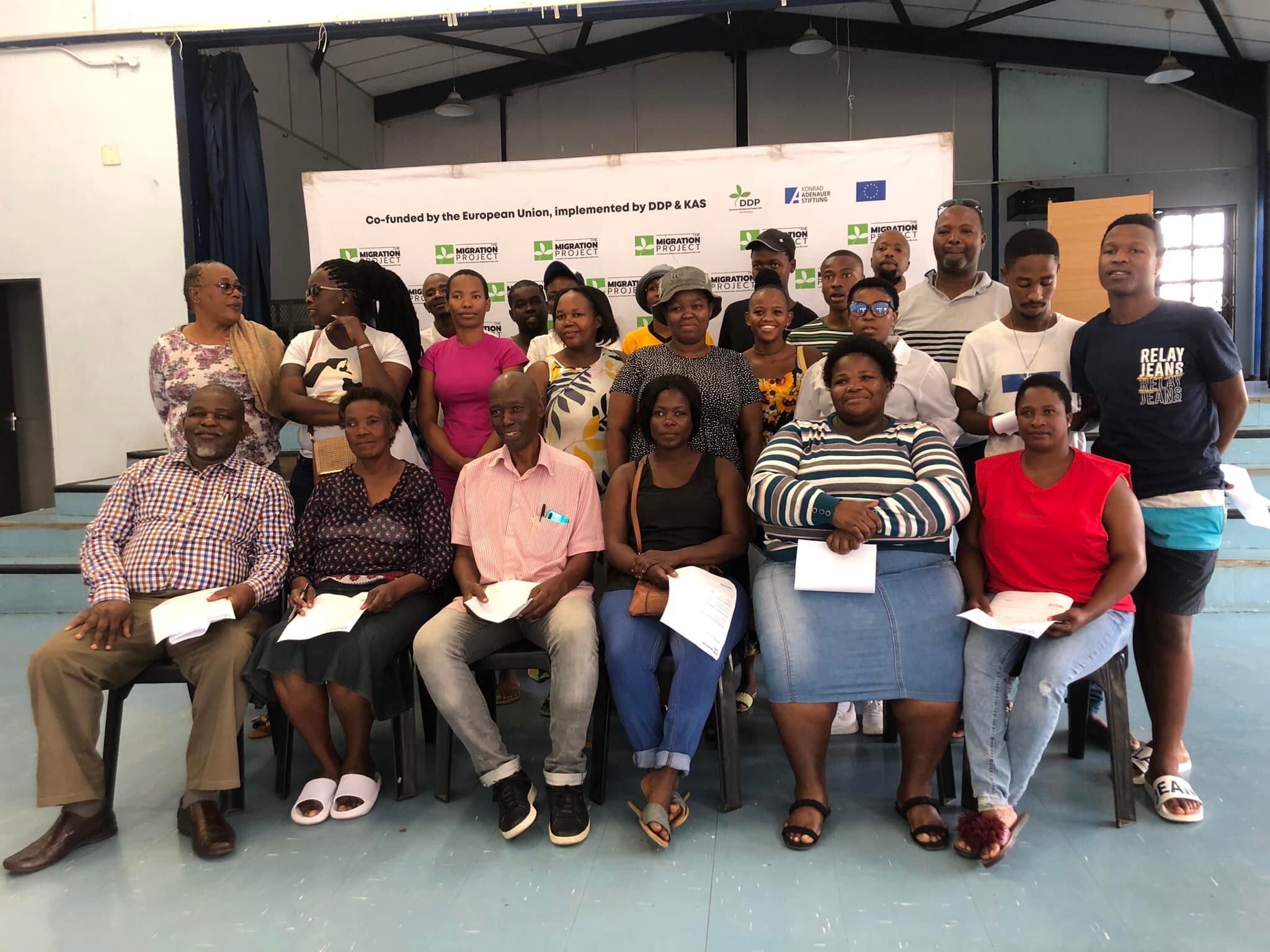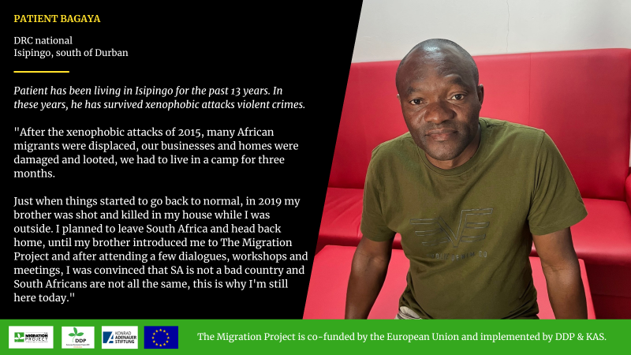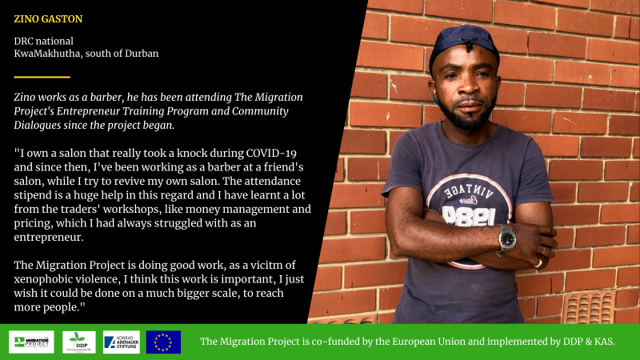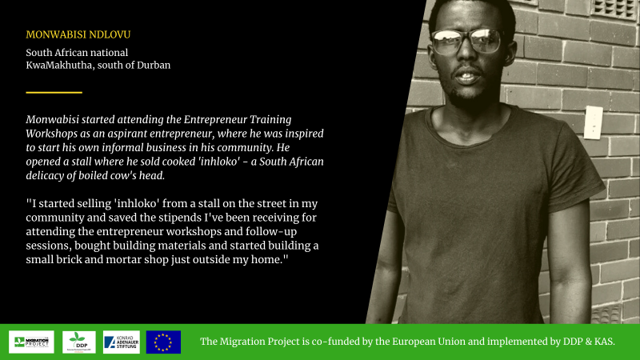Migration, Social Cohesion and Human Rights Program
About
The Democracy Development Program (DDP) implemented a Migration Project funded by the European Union from 2020 to 2023. This project aimed to address the challenges and opportunities associated with migration, focusing on enhancing democratic governance and social cohesion in the context of increased migration flows. The intervention continues post the initial funding from the European Union (EU) as a full fledged program of the DDP.
The program aims to contribute towards improved community interrelationships and reduced conflict in KwaZulu-Natal through socio-economic cooperation between African migrants and their local host communities.
This is achievable through various interventions, such as:
- Strengthening the capabilities of civil society organisations (working on racial discrimination, racism, xenophobia and similar intolerances) for lessening xenophobic tendencies among African migrants, South Africans and duty-bearers in KwaZulu-Natal.
- Fostering improved long-term cooperation and business skills transfer between African migrants and the local communities they have settled in.
- Inviting the cooperation of duty-bearers in KwaZulu-Natal upon whom the responsibilities of social cohesion and socio-economic development lie.
- Various research initiatives provide the necessary empirical evidence to inform the various aspects of program.
- Collecting accurate data needed to develop long-term strategies to deal with issues of xenophobia.
- Training of local media (community radio stations, and community newspapers) to report sensitively and responsibly on matters of xenophobic violence and African migrants in South Africa.
The program is being implemented in the greater Durban Metropolitan area that are considered hotspots for xenophobic violence, namely:
- KwaMakhutha
- KwaMashu
- lsipingo
- Umlazi
- Sydenham
The impact of this project
This program has made significant strides in improving community relationships and reducing conflict in Durban Metro. The project focuses on fostering socio-economic cooperation between African migrants and their local host communities.
Key impacts include:
CSOs capabilities to address issues like racial discrimination, racism, and xenophobia have been enhanced across all communities where the program is running.
Long-term cooperation and skills exchange between migrants and local communities have been fostered by way of signing a joint Memorandum of Understandig (MOU).
Strong partnerships between local authorities and communities where thev program is being operated have been forged in efforts to promote social cohesion and socio-economic development in the various wards where the program is being implemented, demonstrated by notable absence of tensions among African migrants and their host communities.
Local community media is capacitated to report responsibly and sensitively on xenophobic violence and migrant issues.
